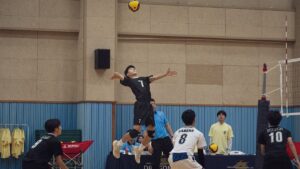Introduction: The Power Within
Have you ever watched an athlete perform at the peak of their abilities and thought, “How do they do that?” It’s a mesmerizing spectacle, watching someone seemingly transcend their physical limits. While we often attribute such feats to genetics, rigorous training, or sheer willpower, what if the real secret lies within the mind? Unlocking your mind’s potential is not just a motivational cliché; it’s a journey into the intricate interplay between mental conditioning and peak performance.
The Science Behind Mental Conditioning
To understand how we can unlock our mind’s potential, we must first explore the science behind mental conditioning. Research in psychology and sports science has revealed compelling insights into the role of mental strategies in achieving peak performance. For instance, studies have shown that visualization techniques can significantly enhance an athlete’s performance. Imagine a gymnast practicing their routine in their mind—every flip, every turn. This mental rehearsal activates the same neural pathways as physical practice. It’s like a secret warm-up that prepares the brain for action.
Neuroscience and Neuroplasticity
Neuroscience tells us that our brains are remarkably adaptable—a concept known as neuroplasticity. This means that, with the right mental training, we can reshape our thought patterns and enhance our cognitive abilities. (I recall a time when I tried meditation for the first time. I expected it to be simple, just sitting quietly. Little did I know, I was about to embark on a journey of self-discovery.) By harnessing the power of neuroplasticity, we can improve our focus, resilience, and overall mental performance.
Mindfulness and Its Impact
Mindfulness is another key player in unlocking mental potential. Engaging in mindfulness practices can lead to reduced anxiety and increased concentration. It’s no wonder that elite athletes, from tennis stars to Olympic champions, incorporate mindfulness into their training regimens. A study published in the journal Sport, Exercise, and Performance Psychology found that athletes who practiced mindfulness reported greater levels of confidence and lower levels of performance anxiety. This isn’t just fluff; it’s backed by science.
The Role of Motivation and Goal Setting
Now, let’s pivot to motivation. Ever tried to run a mile on a lazy Sunday morning? If you’re anything like me, the couch can be a powerful adversary. However, when we set clear, achievable goals, motivation can surge. Goal setting creates a roadmap, providing direction and purpose. According to Dr. Edwin Locke, a pioneer in goal-setting theory, specific and challenging goals lead to higher performance than easy, vague ones.
SMART Goals for Peak Performance
To effectively set goals, consider using the SMART criteria—Specific, Measurable, Achievable, Relevant, and Time-bound. For example, instead of saying, “I want to get fit,” a SMART goal would be, “I will run 5 kilometers in under 30 minutes within three months.” This approach transforms vague aspirations into concrete plans, making it easier to maintain motivation. (I once tried to train for a half-marathon with a vague goal in mind. Spoiler alert: it didn’t go well. But when I broke it down into smaller milestones, I actually enjoyed the process.)
Visualization Techniques: Seeing is Believing
We’ve touched on visualization briefly, but let’s delve deeper. Visualization is not just about imagining success; it’s about creating a detailed mental image of the performance you wish to achieve. Athletes like Michael Phelps have famously used visualization techniques to rehearse their races. He visualized every stroke, every turn, and every breath before stepping onto the starting block.
Creating Your Visualization Routine
To create your own visualization routine, follow these steps:
- Find a quiet space: Choose a place where you can relax without distractions.
- Close your eyes: Take a few deep breaths to center yourself.
- Imagine your performance: Picture yourself succeeding, focusing on the details—how it feels, sounds, and even smells.
- Incorporate emotions: Feel the excitement and joy of achieving your goal.
Regular practice of visualization can enhance confidence and reduce anxiety during actual performances.
Building Resilience Through Mental Toughness
Resilience is the ability to bounce back from setbacks. It’s what separates the champions from the also-rans. Developing mental toughness is crucial for anyone looking to unlock their potential. (I remember watching a documentary about a famous climber who faced a near-fatal fall. Instead of giving up, he returned to the mountain stronger than ever. Talk about grit!)
The Four Pillars of Mental Toughness
According to sports psychologists, mental toughness can be broken down into four key components:
- Confidence: Believing in your abilities.
- Focus: Maintaining concentration amidst distractions.
- Control: Managing emotions and responses.
- Commitment: Staying dedicated to your goals despite challenges.
By strengthening these pillars, you can cultivate a resilient mindset that empowers you to face challenges head-on.
The Importance of Recovery
Peak performance isn’t just about pushing your limits; it also involves knowing when to step back and recover. Recovery is a critical component of performance enhancement. (Honestly, I’ve learned this the hard way. I used to think that training harder meant training more, but my body had other ideas. Rest days are not just for the weak!)
Physical and Mental Recovery Techniques
Effective recovery techniques include:
- Active recovery: Engaging in low-intensity activities, like walking or swimming, can promote blood flow and speed up recovery.
- Sleep: Quality sleep is vital for cognitive function and physical recovery.
- Meditation and relaxation: Practices like yoga or deep breathing can help reduce stress and enhance recovery.
Balancing training with recovery allows your mind and body to recharge, ultimately leading to improved performance.
Nutrition: Fueling the Mind and Body
Nutrition plays a pivotal role in mental performance. What we eat directly influences our brain function, energy levels, and mood. (I still remember the time I fueled a workout with nothing but a candy bar. Spoiler alert: it didn’t end well.)
Essential Nutrients for Optimal Cognitive Function
To optimize mental performance, consider incorporating these nutrients into your diet:
- Omega-3 fatty acids: Found in fish and flaxseeds, these are crucial for brain health.
- Antioxidants: Foods like berries and dark chocolate can help protect the brain from oxidative stress.
- Complex carbohydrates: Whole grains provide sustained energy, keeping you focused.
- Hydration: Don’t underestimate the power of water; dehydration can lead to fatigue and decreased cognitive function.
Eating a balanced diet not only supports physical performance but also enhances mental clarity and focus.
The Role of Support Systems
No one achieves greatness in isolation. Whether it’s coaches, teammates, friends, or family, having a solid support system can significantly impact your journey toward peak performance. (I’ve often found that a good training partner can make a world of difference. Plus, they’re great for sharing post-workout pizza.)
Building Your Support Network
To cultivate a robust support system:
- Communicate: Share your goals and aspirations with those around you.
- Seek guidance: Don’t hesitate to ask for advice or mentorship from those with experience.
- Celebrate achievements: Acknowledge both small and large victories with your support network.
Having people who believe in you can boost your confidence and help you navigate the challenges you may face.
Putting It All Together: A Personal Journey
As I reflect on my own journey toward unlocking my potential, I recall a time when I felt completely lost. I was training hard, but the results just weren’t there. It struck me that I was missing something essential: I was neglecting my mental game. I began to incorporate visualization, set SMART goals, and engage in mindfulness practices. Over time, I noticed a shift—not just physically, but mentally.
The combination of mental conditioning, a supportive community, proper nutrition, and recovery techniques transformed my approach to performance. It’s a continuous journey, a dance between pushing limits and knowing when to rest. And while the path is not always straight, the discoveries along the way are invaluable.
Conclusion: Your Mind is Your Greatest Asset
Unlocking your mind’s potential is a multifaceted endeavor that requires dedication, practice, and a willingness to explore new strategies. Whether you’re an athlete, a student, or simply someone looking to enhance your performance in daily life, the tools and insights shared in this article can help you tap into your hidden capabilities.
As you embark on this journey, remember: the mind is a powerful ally. Embrace the techniques, cultivate resilience, and most importantly, believe in yourself. Peak performance is within reach—it’s time to unlock your potential and see how high you can soar.













